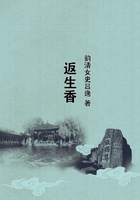But the attempt failed. "I am ready," said Lowther,--and he doubtless expressed what many felt,--"I am ready to support any motion that may do honour to the Admiral; but I cannot join in an attack on the Secretary of State. For, to my knowledge, their Majesties have no more zealous, laborious or faithful servant than my Lord Nottingham." Finch exerted all his mellifluous eloquence in defence of his brother, and contrived, without directly opposing himself to the prevailing sentiment, to insinuate that Russell's conduct had not been faultless. The vote of censure on Nottingham was not pressed. The vote which pronounced Russell's conduct to have been deserving of all praise was communicated to the Lords; and the papers which they had sent down were very unceremoniously returned.352 The Lords, much offended, demanded a free conference. It was granted; and the managers of the two Houses met in the Painted Chamber. Rochester, in the name of his brethren, expressed a wish to be informed of the grounds on which the Admiral had been declared faultless. To this appeal the gentlemen who stood on the other side of the table answered only that they had not been authorised to give any explanation, but that they would report to those who had sent them what had been said.353By this time the Commons were thoroughly tired of the inquiry into the conduct of the war. The members had got rid of much of the ill humour which they had brought up with them from their country seats by the simple process of talking it away. Burnet hints that those arts of which Caermarthen and Trevor were the great masters were employed for the purpose of averting votes which would have seriously embarrassed the government. But, though it is not improbable that a few noisy pretenders to patriotism may have been quieted with bags of guineas, it would be absurd to suppose that the House generally was influenced in this manner. Whoever has seen anything of such assemblies knows that the spirit with which they enter on long inquiries very soon flags, and that their resentment, if not kept alive by injudicious opposition, cools fast. In a short time every body was sick of the Grand Committee of Advice. The debates had been tedious and desultory. The resolutions which had been carried were for the most part merely childish. The King was to be humbly advised to employ men of ability and integrity. He was to be humbly advised to employ men who would stand by him against James. The patience of the House was wearied out by long discussions ending in the pompous promulgation of truisms like these. At last the explosion came. One of the grumblers called the attention of the Grand Committee to the alarming fact that two Dutchmen were employed in the Ordnance department, and moved that the King should be humbly advised to dismiss them. The motion was received with disdainful mockery. It was remarked that the military men especially were loud in the expression of contempt. "Do we seriously think of going to the King and telling him that, as he has condescended to ask our advice at this momentous crisis, we humbly advise him to turn a Dutch storekeeper out of the Tower? Really, if we have no more important suggestion to carry up to the throne, we may as well go to our dinners." The members generally were of the same mind. The chairman was voted out of the chair, and was not directed to ask leave to sit again. The Grand Committee ceased to exist. The resolutions which it had passed were formally reported to the House. One of them was rejected; the others were suffered to drop; and the Commons, after considering during several weeks what advice they should give to the King, ended by giving him no advice at all.354The temper of the Lords was different. From many circumstances it appears that there was no place where the Dutch were, at this time, so much hated as in the Upper House. The dislike with which an Englishman of the middle class regarded the King's foreign friends was merely national. But the dislike with which an English nobleman regarded them was personal. They stood between him and Majesty. They intercepted from him the rays of royal favour. The preference given to them wounded him both in his interests and in his pride. His chance of the Garter was much smaller since they had become his competitors. He might have been Master of the Horse but for Auverquerque, Master of the Robes but for Zulestein, Groom of the Stole but for Bentinck.355 The ill humour of the aristocracy was inflamed by Marlborough, who, at this time, affected the character of a patriot persecuted for standing up against the Dutch in defence of the interests of his native land, and who did not foresee that a day would come when he would be accused of sacrificing the interests of his native land to gratify the Dutch. The Peers determined to present an address, requesting William not to place his English troops under the command of a foreign general. They took up very seriously that question which had moved the House of Commons to laughter, and solemnly counselled their Sovereign not to employ foreigners in his magazines. At Marlborough's suggestion they urged the King to insist that the youngest English general should take precedence of the oldest general in the service of the States General. It was, they said, derogatory to the dignity of the Crown, that an officer who held a commission from His Majesty should ever be commanded by an officer who held a similar commission from a republic. To this advice, evidently dictated by an ignoble malevolence to Holland, William, who troubled himself little about votes of the Upper House which were not backed by the Lower, returned, as might have been expected, a very short and dry answer.356While the inquiry into the conduct of the war was pending, the Commons resumed the consideration of an important subject which had occupied much of their attention in the preceding year. The Bill for the Regulation of Trials in cases of High Treason was again brought in, but was strongly opposed by the official men, both Whigs and Tories. Somers, now Attorney General, strongly recommended delay. That the law, as it stood, was open to grave objections, was not denied; but it was contended that the proposed reform would, at that moment, produce more harm than good. Nobody would assert that, under the existing government, the lives of innocent subjects were in any danger. Nobody would deny that the government itself was in great danger. Was it the part of wise men to increase the perils of that which was already in serious peril for the purpose of giving new security to that which was already perfectly secure? Those who held this language were twitted with their inconsistency, and asked why they had not ventured to oppose the bill in the preceding session. They answered very plausibly that the events which had taken place during the recess had taught an important lesson to all who were capable of learning. The country had been threatened at once with invasion and insurrection. No rational man doubted that many traitors had made preparations for joining the French, and had collected arms, ammunition and horses for that purpose. Yet, though there was abundant moral evidence against these enemies of their country, it had not been possible to find legal evidence against a single one of them. The law of treason might, in theory, be harsh, and had undoubtedly, in times past, been grossly abused. But a statesman who troubled himself less about theory than about practice, and less about times past than about the time present, would pronounce that law not too stringent but too lax, and would, while the commonwealth remained in extreme jeopardy, refuse to consent to any further relaxation. In spite of all opposition, however, the principle of the bill was approved by one hundred and seventy-one votes to one hundred and fifty-two. But in the committee it was moved and carried that the new rules of procedure should not come into operation till after the end of the war with France. When the report was brought up the House divided on this amendment, and ratified it by a hundred and forty-five votes to a hundred and twenty-five. The bill was consequently suffered to drop.357 Had it gone up to the Peers it would in all probability have been lost after causing another quarrel between the Houses. For the Peers were fully determined that no such bill should pass, unless it contained a clause altering the constitution of the Lord High Steward's Court; and a clause altering the constitution of the Lord High Steward's Court would have been less likely than ever to find favour with the Commons. For in the course of this session an event took place which proved that the great were only too well protected by the law as it stood, and which well deserves to be recorded as a striking illustration of the state of manners and morals in that age.
同类推荐
热门推荐
追妻无门:女boss不好惹
青涩蜕变,如今她是能独当一面的女boss,爱了冷泽聿七年,也同样花了七年时间去忘记他。以为是陌路,他突然向他表白,扬言要娶她,她只当他是脑子抽风,他的殷勤她也全都无视。他帮她查她父母的死因,赶走身边情敌,解释当初拒绝她的告别,和故意对她冷漠都是无奈之举。突然爆出她父母的死居然和冷家有丝毫联系,还莫名跳出个公爵未婚夫,扬言要与她履行婚约。峰回路转,破镜还能重圆吗? PS:我又开新文了,每逢假期必书荒,新文《有你的世界遇到爱》,喜欢我的文的朋友可以来看看,这是重生类现言,对这个题材感兴趣的一定要收藏起来。内战风云(二):短暂和平
游子还乡1945年12月1日,天津大公报复刊,当天发表社评《重见北方父老》称:“一别八载余,今天重与北方父老相见,我们真有说不出的欣慰与感慨。……大公报是生长在北方的。自1902年创刊于天津,……在这数十年岁月中,为国家为人民曾不断尽其报道与言论之责。大公报是北方的报,大公报离不开北方,北方没有了大公报也必定倍感寂寞。但是,大公报竟然离开了北方,离开了八年多!是谁叫大公报离开北方的?乃是空前的外患,严重的国难。Before He Needs (A Mackenzie White Mystery—Book 5)
From Blake Pierce, bestselling author of ONCE GONE (a #1 bestseller with over 900 five star reviews), comes book #5 in the heart-pounding Mackenzie White mystery series.In BEFORE HE NEEDS (A Mackenzie White Mystery—Book 5), FBI special agent Mackenzie White finds herself summoned to crack a case she has never encountered before: the victim is not a man or a woman—but a couple.The third couple found dead in their homes this month.As Mackenzie and the FBI scramble to figure out who would want happily-married couples dead, her search takes her deep into a disturbing world and subculture. She quickly learns that all is not what it seems behind the picket fences of perfectly-suburban homes—and that darkness lurks at the edge of even the happiest-seeming families.















